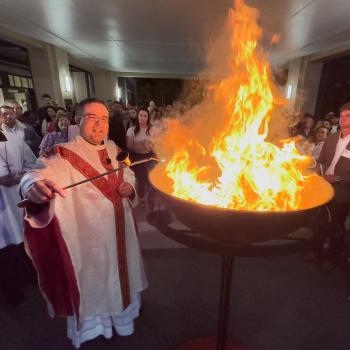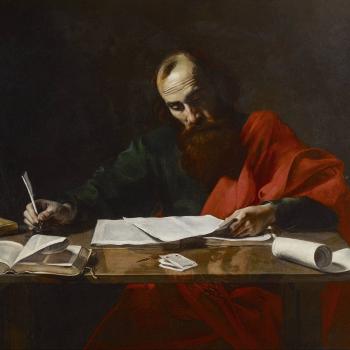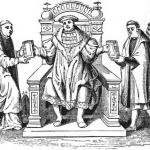I wrote this summary of Postmodernism about one year ago. After studying it in a seminar, I attended the well-known musical Wicked and immediately recognized postmodern elements in it. It made me wonder if the popularity of Wicked is only due to its music, or perhaps because people identify with its Postmodern message. I hope to write a reflection on this later. For now, here is my summary of Postmodernism.
Postmodernism may be identified as a movement or attitude in philosophy and theology in recent decades, but also denotes a certain type of behavior and thinking especially in the Western World. Opposed and varying thoughts and ideologies of recent decades have led to relativism in order to cope with the many opposing mentalities of modern times. Nothing is seen as definitive in this movement, leading to a dictatorship of relativism (Joseph Cardinal Ratzinger, April 18th, 2005).
The Enlightened thought of Descartes, Hume and Kant brought back a systematic skepticism, rejecting everything that was known with certainty. These philosophies shook the foundation of Western thought, but brought forth a new mentality.
The times of the Modernist movement saw many changes in society, thought and science, ranging from agrarian revolutions, Karl Marx, Darwin’s theory of evolution, women liberation movements, advances in physics, mass communication and the questioning of traditional Biblical interpretations. There was great optimism. Progress was hailed as king and as time elapsed, things could only improve for humanity.
With the disillusionment caused by the catastrophes of the first half of the 20th century, there began an overall rejection of many cultural settings on which life had been structured for centuries, questioning cultural progress and political systems. Post-modernism advocates cultural relativism where there is no objective truth, value or reason. There are no universal trans-cultural beliefs. All these are linguistic creations of social groups, not individuals. Truth is relative to the community to which one participates according to the narratives out of which the community operates. Even gender is not real, but rather it exists insofar as society assigns a value to it. Humans become an extension of culture. The same applies to God.
There is no progress in society but rather only change. There is nothing better than another thing, only differences. This differs from liberals who advocate a certain ideology while condemning others. Postmodernism accepts all ideologies as long as they do not bother others. All things have equal value.
Post-modernism may be seen as a consequence of modernism since modernism states all things must be proven. Postmodernism takes this statement to a conclusion: there is no truth since truth cannot be always proven. There has been a transition from modernism to postmodernism rather than a replacement of modernism by postmodernism.
Gianni Vattimo, an Italian philosopher and politician who was raised Catholic, became a nihilist philosopher when he encountered Nietzsche and Heidegger. His contribution to philosophy is the concept of pensiero debole or weak thought. He argues that the disasters of the 20th century were caused by ideas of strong reason, which lead to perfection, exclusive truth, a progression of history and ultimately violence, intolerance and totalitarianism. Weak thought however describes an absence of foundations, a nihilism or weak truth where nothing is absolute. The only acceptable approach is tolerant reason since each system has its own truth, each one being equally limited and finite. He argues that the dissolution of foundations will set you free, not the truth. A tolerant, democratic society is better than a violent totalitarian regime. Love, the weak foundation of reason, becomes the new foundation of a tolerant and pluralistic society.
With Vattimo’s argument, it becomes impossible to posit authentic values. He does away with certitude and does not replace old values. It ends metaphysics since without universal truths, argumentation is not possible.
The God of strong concepts and truth is rejected by Vattimo. He criticizes Catholicism as it exists today calling it to a simpler religion. He sees authenitic Christianity as the religion of charity, tolerance and community free from dogma and metaphysics. Christianity could be the religion of post-modernity since it preaches love and has a weak God who became man and died.
















